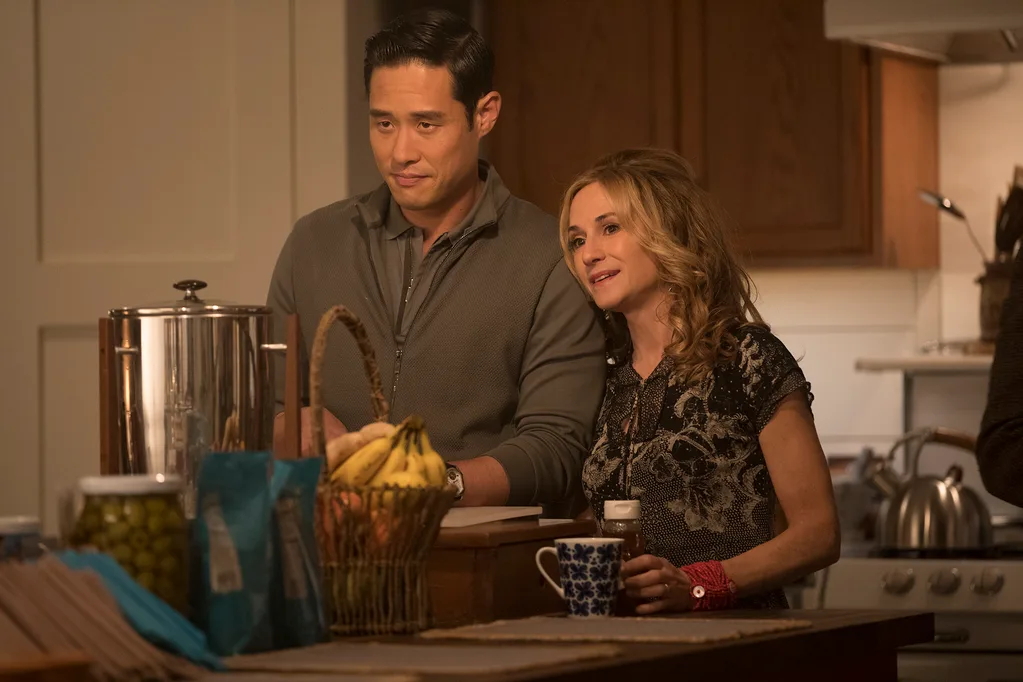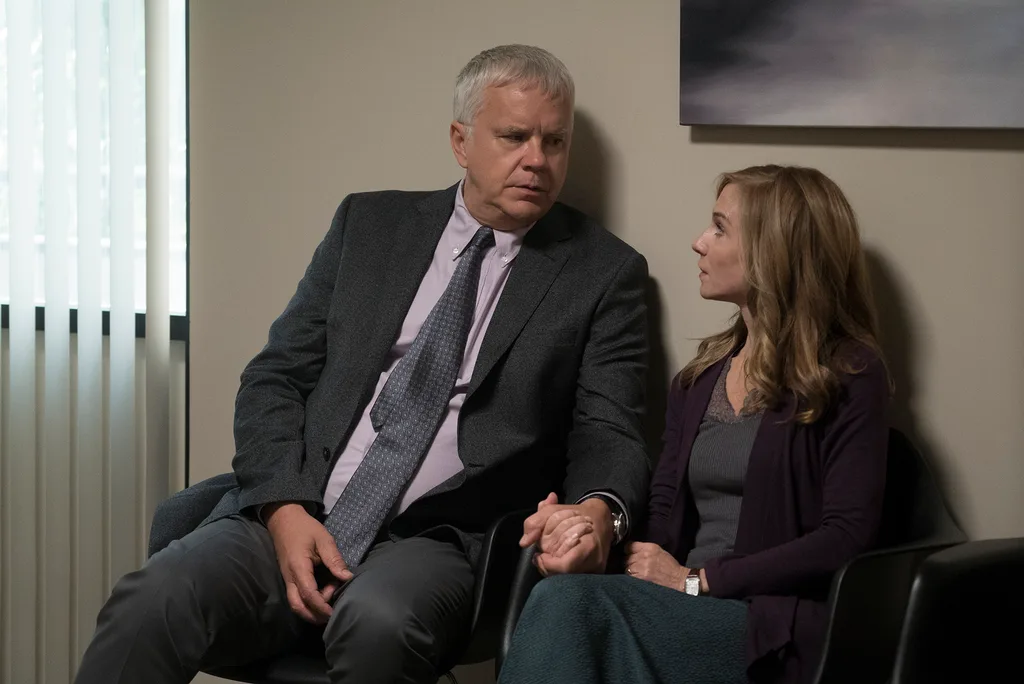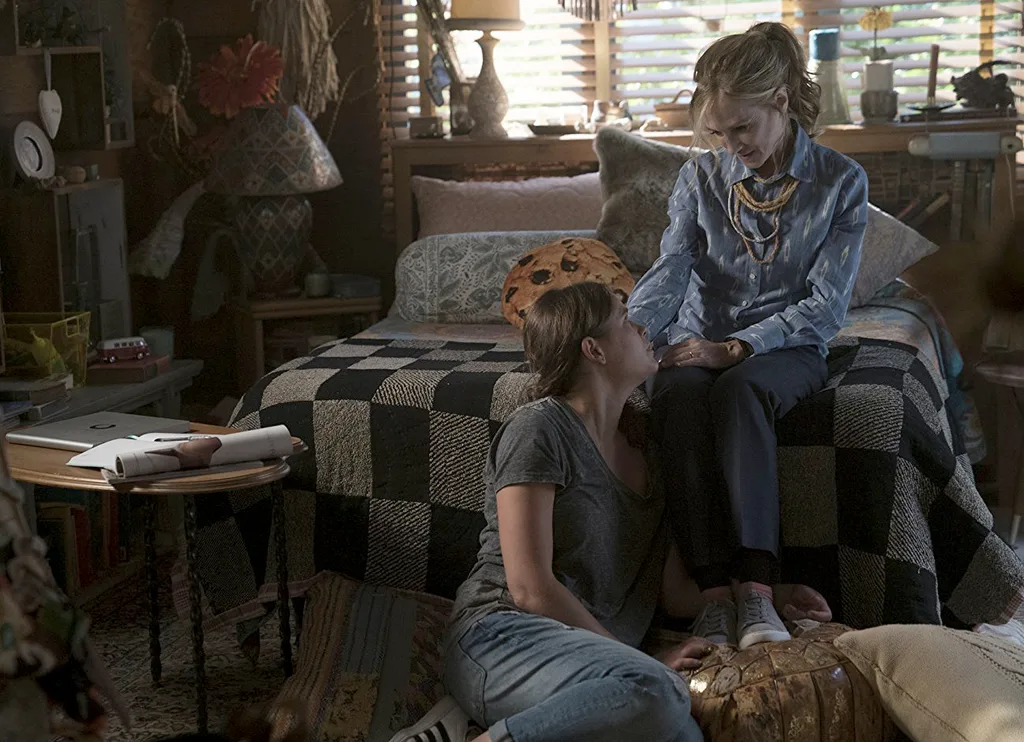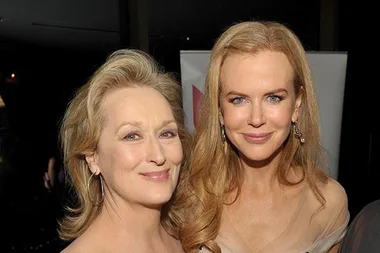American actress Holly Hunter, best-known for her role as Ada McGrath in Jane Campion’s Oscar-winning film The Piano, has made a return to television to star in the new HBO TV series Here and Now.
Here and Now is centred around a family living in Portland, made up of members from different countries. Philosophy professor Greg (played by Tim Robbins) and former therapist, now school consultant, Audrey (Holly Hunter) have adopted three children; from Liberia, Vietnam and Colombia and have one biological daughter. The plot thickens as one of the members of the family begins to see things the rest can’t.
Here, Holly discusses the role and what drew her to it.
What was it that appealed to you about playing Audrey?
H.H Well, I think she’s an amazing character. She’s got so many opposites in her, and I think there’s something about Alan (Ball, the show’s creator) that you’re always seeing his characters through a certain filter. His work is not drenched in sincerity. He has a certain obliqueness, and I think, with Audrey, you’re able to laugh at her, and sympathise, and empathise with her.
She has such muscular desires to be part of things, and to make sure everything is okay, to forge a connection, and sometimes that muscularity can be a little off-putting. There are some conversations about boundaries with Audrey. There can be an overreach – but at least there’s a reach. The hand is still extended. And I think that that extension, the open palm, is ultimately the thing that is beautiful.

Holly Hunter and Raymond Lee in a scene from Here and Now.
One critic wrote that Audrey and Greg are disappointed, frustrated liberals in the present day United States. Do you think that’s a fair analysis of where they’re at?
H.H Yes and no. I mean, I think that the show, for all of its liberalism, supersedes all political beliefs. I think it overrides red and blue, because what it really is talking about is the collisions and the connections in a family. And Dick Cheney taught us that – he has a daughter who came out. And it was like, okay, there’s a certain embrace that Dick Cheney has a choice to make or not make, with a community he never envisioned having be part of his family.
So, I think no matter what your political leanings are, you still must confront the realities of living together. And do you reject or embrace your family of origin? And then your adopted family. And your chosen family. And then your community family. And then the global family. I think that the show has bitten off a very, very large thing. And Alan wants to talk about it, in all of its messiness. So, in that way, to describe the show as liberal, I think is denying the humanity of what Alan wants to have a conversation with us about.
When Greg and Audrey adopted their children, they would have been quite radical and forward thinking. Did you talk to anyone or do any reading in terms of those kind of blended families and trans-racial families, particularly at that time?
H.H I have personal friends who have embarked on this particular adventure. So I think that was the most useful to me, and then I also believe that my own imagination was very useful to me.
I think it’s very interesting – Tim Robbins’ character talks about it as an experiment. And I think that it is, once again, a kind of expression. A manifestation of an empathic response to a family. And to the world. It’s symbolic of a larger conversation that we’re having with our hopeful audience, about what it means to transcend what is different about us, to reach what it is that binds us.

Tom Robbins as Greg and Holly Hunter as Audrey.
The mother-daughter relationship between, Audrey and Ashley is an intense one. What were your thoughts about how much of that is ordinary mother-daughter tensions, and how much because of resentments at being an ‘experiment’?
H.H Well experiment is not really Audrey’s word, but there are these betrayals, and misunderstandings, and a desire to see somebody and yet still not be able to see them – you want to see them and they feel obliterated by your looking.
I think it is made very specific by the fact that Ashley is who she is, and Audrey is who she is. But in that is something that every family member who has a sustaining relationship with their parents, or their sibling, goes through. Those betrayals, and misunderstandings, and hurts and wounds. They are ongoing with that kind of intimate relationship.
But they’re both still in there, still in the ring, circling each other. They still get into the ring. They go through the ropes and they get in there, and that’s everything. In the pilot, the model says: Oh, so you guys feel that it’s so important to like travel around the world? How come you’re still in Portland? How come you’re not international? And that’s interesting.
Why are they not? Because there’s a nucleus that calls – they are a family. With all of these terrible troubles that exist between them, it’s a magnet.
Do you think every family is dysfunctional?
H.H Well, in a lot of dysfunctional families, maybe you don’t see them for 15 years. Or somebody dies, and you didn’t go to the funeral. That’s not this story.
With the success of This Is Us, do you think the family drama genre is having a bit of resurgence?
H.H I do think that there’s a certain interesting saying: let’s stay together, how do we stay together? How do we overcome our divisions, to be together? I think that’s happening. And the actual nuclear family is very challenging.
Obviously, there are betrayals that every family goes through, but there’s a bigger one in terms of the marriage, which Audrey, for all of her smartness, seems to be completely oblivious to. Do you think she really is oblivious, or do you think it’s just she doesn’t want to see it?
H.H What I really believe is that if somebody wants to deceive you, they can deceive you. If you want to lie, you can lie. Like Shakespeare said, the truth will out. The cat will mew, and dog will have his day. And then there will be another chapter.
These things happen – people say: oh my god, my husband died and then ten years after the funeral I found his diary up in the attic and there it was, and I had to deal with this betrayal, blah blah blah. There are so many different contracts that people draw up, and who’s to judge, in some ways? I think that the older that you get, and the more experience that you have, and the more experiences you see people having, you go: the world is a large place.
Lots of different relationships work with their own private contracts. And the contract between Audrey and Greg is a somewhat mysterious one, but then again, what’s not?

Holly Hunter and Sosie Bacon in Here and Now.
Alan has said that he thinks that aging is more difficult for men than women. Do you think that’s true?
H.H I don’t know. I might argue with him. I think, in some ways that’s true. But I think society punishes women for getting older, and punishes men much less. Culturally, we’re a lot easier on guys than we are on women.
But the private thing about ageing could be true. Because women bleed once a month, and they are capable of childbirth, and they see the beginnings and the ends of a physiological miracle, of reproduction. That happens with a woman’s body, from, you know, whenever you start your period until you go through menopause.
There are all those reckonings, and all of that realisation. Women are less squeamish. There’s a visceral kind of passage that women regularly go through that men don’t. So in a way, I think the grotesquery of being alive is more familiar to women than it is to men.
Audrey is amazingly complex and complicated and wonderful. Do you think that there are more of those roles now on television than you’re finding on film?
H.H Oh yeah. Well that’s easy to say. You should do the math. I mean, don’t ask me to do the math, because, I’m an actor. But someone should.
Is that more satisfying, getting to play these people over a longer period of time?
H.H Well, it has its own satisfactions. There’s a real incredible satisfaction to doing something that packs a wallop in an hour and a half too. They’re just two completely different sensibilities.
I love the form of the feature film – I have a great, deep, abiding love for that kind of impact. And it’s just an entirely different life experience with James Gandolfini, in the Sopranos, and how he lives in me, you know. And Edie Falco too. Those characters live in me, because I was living with them, for so long. So that is another residence that I cherish. That’s just very different from seeing a movie by Michael Haneke.
Here and Now is currently streaming on NEON, with new episodes weekly.


